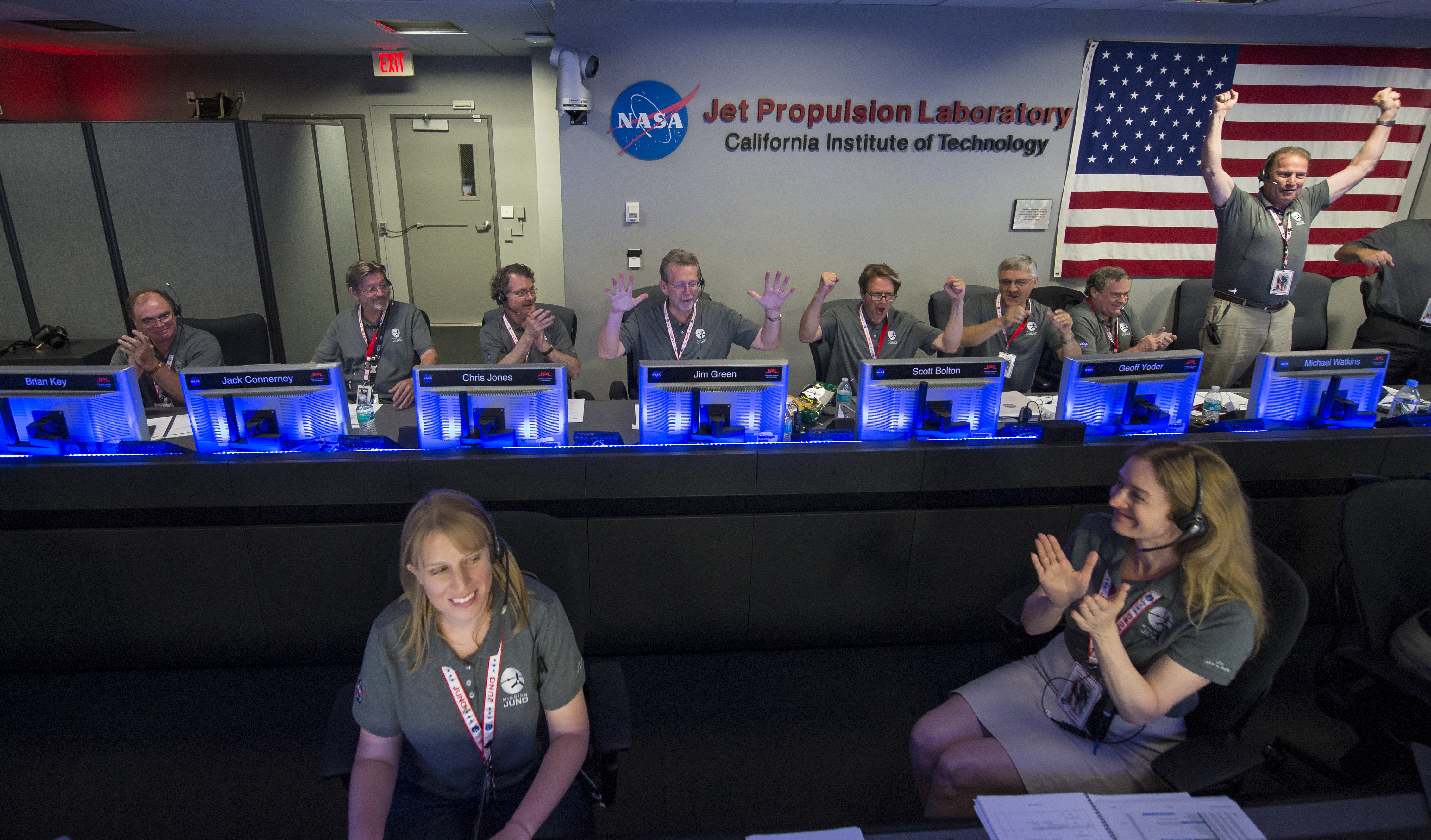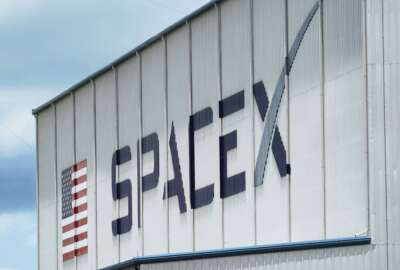Hubbard Radio Washington DC, LLC. All rights reserved. This website is not intended for users located within the European Economic Area.
On Air: Federal News Network
Trending:
UK space company to set up shop on U.S. soil
The U.K. based company Space Forge recently announced plans to launch U.S. manufacturing operations in the United States, just showing how global space interest...
The U.K. based company Space Forge recently announced plans to launch U.S. manufacturing operations in the United States, showing how global space interests have become overseas. The person they picked to run those operations is Andrew Parlock, who’s worked for major American companies, but also a microsatellite manufacturer in Finland. Like I said, global. I found out what his plans are and get his take on the industry.
Interview transcript
Andrew Parlock So Space Forge just had some really great success in the U.K. and gotten amazing support from U.K. government, U.K. [Ministry of Defence (MoD)], and then the kind of defense industry and space industry in the U.K. So it just becomes the natural progression of events that the U.S. is the largest space market and largest defense market. And so it just works. It just works and just makes sense strategically. What do we need to do here in the States? We’re slowly building some brand awareness. We’ve already got, believe it or not, a little bit of brand awareness at the national lab level. The people that are paid to know what the next most innovative things are. So you can imagine our Air Force research labs, our friends at Defense Innovation Unit, they’re aware of what we’re doing and we’re going to be leveraging that awareness as we move forward. So that’s kind of where we are. And business development, getting that brand awareness and building it to the point where people know who we are and know what we do.
Andrew Parlock But then there’s this good old fashioned blocking and tackling. We’re going to be doing manufacturing here in the U.S. We’re going to be building an entire team. What that manufacturing looks like, no pun intended, the sky’s a little bit the limit. Space Forge brings a really unique opportunity. It’s the entire value chain, not just of space, but of manufacturing. So you have spacecraft R&D. We’re doing some really novel and innovative things with the spacecraft, in particular with our return technology and our reusable technology. Then you have spacecraft manufacturing, and then we’re going to be bringing up payloads. And so you have the payload R&D. Right now, we’re focused in the semiconductor and semiconductor substrate market. So what is the research and development there look like? And what does the manufacturing of the payload look like? And then, of course, you have, well, we’ve got to launch. We’ve got to do our manufacturing on orbit and then return and recover. It’s a whole new piece of the pie that most folks outside of a very select few just don’t think about. So there’s the recovery, the return and the recovery, and then refurbishment. We’re going to be taking these satellites, refurbishing them. Upgrading the payloads, upgrading the satellite and putting them back on orbit. And we’re going to be providing product, we’re going to be bringing product down from orbit. So then there’s a post-processing of the product. And then the product entering whatever value chain for us, initially, it’s going to be the the global semiconductor supply chain. So you have this entire value chain of opportunity in front of you, whereas in a quote unquote, traditional space company or even a new space company. You have spacecraft R&D, a little bit of payload R&D, you manufacture the satellite launch and you move on to the next one. This is a really cycle, a full process from R&D to payload to manufacturing and repeat. So there’s a lot happening. So we’ve got to worry about the manufacturing of the satellites, we’ve got to worry about the focus on the manufacturing of the payloads, get these things built, get the team assembled, build launch capacity, the ability to recover, which is a whole new ball of wax that a lot of folks aren’t even thinking about, outside of our our friends at Space X returning with a very active return down in Kennedy and then out in Vandenberg when they launch out of Vandenburg, there’s very little return. So that’s a whole new piece of the pie that we need to worry about, that’s not just a technical challenge, but a regulatory challenge. So we’re working with state and federal government to understand what’s going to be the challenges there. So there’s a lot happening with building the U.S. team, and I’m really looking forward to it.
Eric White Yeah, it sounds like quite the to do list. You mentioned, and you talked a little bit about it and in establishing yourselves in the U.S. space market, the question of asked of who are we? So what do you answer when people ask you who are Space Forge? And where do you all fit in that process that you just described?
Andrew Parlock Yeah, that’s a really good question. Who is Space Forge? And it’s funny, even in the four and a half years that the company has been around, I think there’s been an evolution of who Space Forge is. If you had asked us before I even joined company a year ago, we would say, Hey, we’re a new space company that’s doing on orbit manufacturing. OK, that’s a good answer, and that’s right. But if you really think about what Space Forge has evolved into, and how the vision has evolved, we’re really an advanced materials company that uses the near perfect environment of space, that being microgravity near perfect vacuum, nearly contaminate free environment to produce advanced materials. So right now, we really talk about ourselves as an advanced materials company that is using the environment of space and novel space technologies to create that next generation of folks have called it super materials, but really advanced materials on orbit. Who is Space Forge in the kind of global space ecosystem? Well, it kind of goes back to the last thing I said. We’re the entire value chain. So we’re going to be partnering with a lot of different folks that a traditional or even a new space company might not partner with? We’re going to be partnering with advanced material manufacturing companies. We’re going to be partnering with folks that are using semiconductors. We’re going to be talking to people within the [Department of Defense (DoD)] and the commercial markets that need a10x improvement in their current semiconductor technology. The aperture on who we are, what we can do and where we can go in the market is exceedingly wide. There’s a lot of cliches there, but I’ll keep it at that. We have a lot of opportunity in front of us. Right now, what I’m talking to our consultants and the team about is getting focused on a couple key very high value opportunities and executing, because we are so new in the U.S. and staying focused and making sure we execute as flawlessly as we can, I’ll say as with as few flaws as we are able, is going to be key to our success as we move forward through ’23 and into ’24.
Eric White Taking an industry wide view, speaking on those opportunities, where do you think that the most opportunity lies in the space field nowadays? Is it going to be in the defense and intelligence area? Because that is, what we are seeing a lot more people like yourself are being hired by companies to get into those areas. Is that a key movement in the direction of where things are going?
Andrew Parlock It’s really interesting. If you look at where I’ve come from, and that being signals intelligence and then earth observation, the key and core markets for those technologies will remain national security for, I think, a long time to come. There is a lot of commercial application there as well. But Space Forge is interesting. You can start to look at applications, of course, for advanced semiconductor materials within the DoD, and we’re going to take advantage of those opportunities as best we can. But I do think there’s going to be much more of a balance, in particular, with Space Forge as it moves forward commercial and DoD. The new space market has followed the old space market, and that has leveraged, as it’s grown up and kind of gone through adolescence, if you will. It has really leveraged the old space market, not being DoD and national security. But the opportunity, the commercial opportunities in front of space, commercial space station. You see some of the stuff that Sierra Space is doing, and a few others that are really focused on commercial space station and with a few companies are doing in orbit, on orbit or what we call in space manufacturing, these are things that even just a few years ago would not be economically viable. And now today they are. And tomorrow it’s going to be expected. I think it was Bezos who recently said let’s offshore all of manufacturing into space as a mechanism, as a as a climate, as a battle against climate change. Now, do we get there? Do we offshore all manufacturing to space? Probably not in my lifetime. But do we start seeing the viability of space, both economically, technically and socially? Yeah, definitely. So I do think we’ll leverage a lot of the DoD and what’s happening in the DoD. But for us, I think commercial is really going to be where it’s at as we move forward and we enter those advanced materials into the global supply chain.
Eric White And you brought up a couple there, and I’m just curious because I can obviously hear the passion in your voice about how excited you are about certain aspects of the commercial space industry. But is there a field or a new technology that you feel will be the game changer coming up that you are excited about the most, I guess, is the question.
Andrew Parlock Boy, I don’t know if we have time for me to answer that whole question. Yeah, I am really passionate about it, so I’m glad that’s coming across. But in space manufacturing, it’s funny, Varda got their vehicle up there first. And I just think that’s awesome. We’ve got to have a healthy, viable in-space manufacturing ecosystem. To me, the concept that we’re going to move some of these technologies that have been really held back, the development of certain alloys, the development of semiconductor substrates, pharmaceuticals, biopharma, things that simply couldn’t happen in the quote unquote dirty gravity environment of earth, the technology and the advancement that we open up by bringing that into space and on orbit and then bringing it back and returning it. Man, that is exciting. So for me, the thing that I’m most excited about is to see this nascent in-space manufacturing community grow and develop technologies that are going to push the limits of what we know is capable today, so beyond. And in doing so, I think it was Einstein that said we’re not solving today’s problems with the technology of today. The problems we create today, need to be solved with problems that with technologies that we’re creating tomorrow. And I think that’s one of the promises of in-space manufacturing is bringing back technologies, bringing back products that can solve some of the most intractable problems around climate change, around pharmaceuticals, around delivery of products. If you’re returning from space, where you return and your supply chain becomes a whole really interesting thing. We can return anywhere on the globe with equal ease, I can return to the east coast of the mid-Atlantic, North America, United States, the same way I can return in the Indian Ocean, whatever the case may be, I’m coming back from orbit. I choose where I come back. So this concept of how the supply chain changes, how the ability to develop these new materials changes, I don’t even think we can answer this. I mean, it really takes a lot of thinking about the art of the possible. And here we are creating some of those things today.
Copyright © 2024 Federal News Network. All rights reserved. This website is not intended for users located within the European Economic Area.
Eric White
Eric White is news anchor and Federal Drive producer at Federal News Network.
Follow @FEDERALNEWSCAST
Related Stories
Investments in the space industry may be down but that doesn’t mean the money’s going away
Related Stories
-
How nation states can have good manners in space The Space Hour
-
NASA’s DEIA efforts could use a boost The Space Hour





